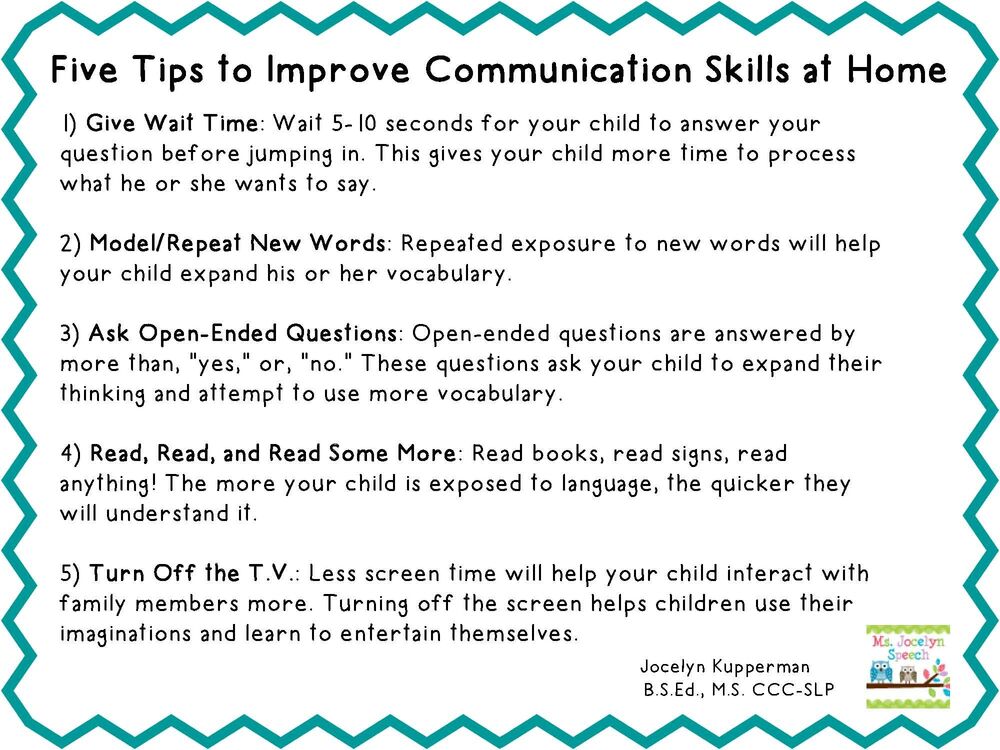
We all want a home that strives for open communication. Good communication fosters trust and understanding, which are two of the most important pillars of any family. Unfortunately, communication is not always easy, especially when discussing sensitive topics or navigating disagreements. That is why having a few strategies on hand can assist you in creating an environment in which everyone feels heard and respected. Here are some suggestions for improving household communication:
Improving Communication at Home
Establish a Positive Tone:
"The Advantages of Good Communication at Home"
Maintaining and strengthening family relationships requires effective communication. It is critical to communicate effectively and respectfully in order to foster a healthy home environment and ensure that everyone's needs are met. Body language, facial expressions, and tone of voice are all examples of nonverbal communication.
Try to set a positive tone before engaging in any difficult conversations. Putting judgmental attitudes aside can help make those conversations more productive. Empathy for one another will also allow each person to express their point of view without fear of being attacked or judged. Listening carefully and with understanding can help resolve conflicts between family members while also encouraging openness among them.
Aside from ensuring that everyone feels heard, good communication fosters trust and respect within the home. It provides an opportunity for everyone to better understand one another and form stronger bonds over time. Parents who actively encourage emotional conversations tend to raise children who are comfortable expressing themselves openly without fear of rejection or criticism.
Overall, good communication is essential for achieving harmony in the home, making it easier for everyone involved to form strong relationships with one another. Taking the time to listen attentively and provide understanding builds strong bonds between family members that will last for a long time.

Exercising Active Listening:
"The Importance of Active Listening at Home"
Good communication is essential in any relationship, including those in the home or family. We may believe that we are communicating effectively with our family members, but without active listening, we may miss out on truly hearing what they have to say.
Giving your full attention to the person speaking, without interrupting or formulating your response, is what active listening entails. Taking this extra step demonstrates that you value their viewpoint, even if you don't always agree with it. It also promotes open communication and fosters respect among family members.
When everyone in the house feels respected and heard, overall relationships improve. This will not only result in more positive interactions within your household, but it will also teach children the value of good communication skills as they grow. Listening enables us to connect with one another and understand one another's perspectives, which is invaluable in any familial setting.
It does not imply that you must always agree; rather, it means taking the time to listen without judgment so that all parties involved can better understand each other. That way, there is room for compromise when necessary, which is essential for any healthy family dynamic. Instead of responding immediately when someone speaks, take a moment to truly hear them out and demonstrate how much you value what they have to say.
Encourage Openness and Honesty:
"Open Lines of Communication at Home Are Critical"
Communication is critical in any family home. It establishes a standard and fosters an atmosphere of openness and honesty in which everyone feels safe enough to express their thoughts and feelings without fear of repercussions or criticism. This promotes better understanding among all family members and facilitates successful problem resolution.
Setting ground rules that emphasize mutual respect is essential for effective communication in the home. All members should feel free to express themselves, knowing that their views will be respected by others. Establishing these guidelines early on can help to foster an environment in which people are more open about their feelings, resulting in more constructive dialogue between family members.
It's also important to remember that effective communication includes more than just speaking; it also includes active listening. Taking the time to truly hear each other out promotes meaningful conversations and improves family members' understanding of one another. When disagreements do arise, everyone has taken the time to truly consider all points of view before making decisions, which can lead to more positive outcomes.
Good communication is essential for creating a family home environment in which everyone feels safe enough to express themselves honestly and openly. Establishing ground rules that encourage mutual respect sets the tone for positive dialogue among all parties involved; not only does this create an environment conducive to problem-solving, but it also strengthens family relationships by fostering deeper understanding through active listening.
In Conclusion
Communication is essential in any relationship, but it is especially important in family relationships. Stronger bonds between family members, a more harmonious atmosphere, better problem-solving abilities, and even healthier relationships with outsiders such as teachers or extended family are all benefits of good communication within the home. Here are some suggestions for improving household communication.
First and foremost, respect everyone's viewpoint. Everyone has their own thoughts, feelings, and beliefs, which should be respected and taken into account. Listen openly and without judgment so that everyone feels heard. Try not to react too quickly or to jump to conclusions; instead, consider what has been said before responding. This will contribute to the creation of a safe environment in which people can express themselves honestly without fear of criticism or negative reactions.
Encourage open dialogue by asking questions - don't just listen passively, but engage people in conversation to show genuine interest in what they have to say. Ask follow-up questions about topics raised during conversations, and allow for debate when necessary - healthy debate is a great way for all parties involved to understand different points of view and find common ground.
Set a good example for others by speaking calmly, using "I-statements" (expressing how you feel rather than blaming others), and refraining from name-calling or insults during disagreements. Finally, try not to let grievances fester because unresolved issues tend to accumulate over time and become more difficult to resolve later on - address conflicts quickly so they can be resolved easily while still fresh in everyone's minds.
These are just a few suggestions for improving household communication; there are many more! Finally, it all comes down to instilling trust, respect, and understanding among all parties involved so that everyone can communicate freely and without fear of being judged. With some practice, patience, and dedication, you can create a home full of good communication that will strengthen family relationships for years to come!